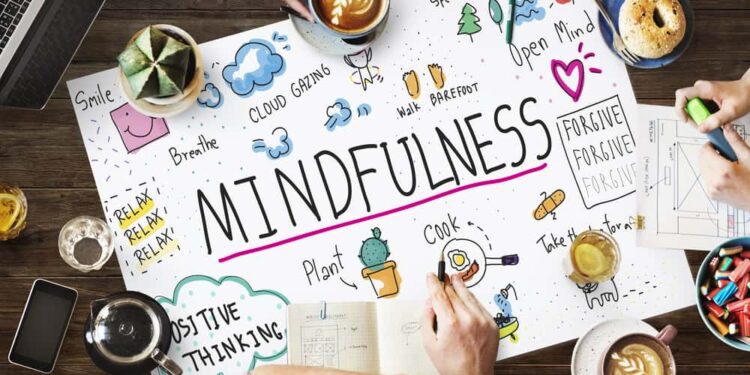Mindfulness is being present and fully engaged in the current moment without judgment or distraction. It is a powerful tool that can help us to reduce stress, improve our relationships, and increase our overall well-being. However, many people need help to practice mindfulness consistently in their everyday lives. This article will explore some practical tips and techniques for integrating mindfulness into your daily routine.
What is Mindfulness?
Mindfulness is practicing paying attention to the present moment with curiosity and non-judgment. It involves observing your thoughts, emotions, and physical sensations without getting caught up in them or reacting impulsively. Mindfulness can be practiced in many ways, including meditation, yoga, mindful breathing, or being fully present in everyday activities.
Benefits of Mindfulness
Numerous studies have shown that mindfulness can have a wide range of benefits for our mental and physical health.
These include:
- Reduced stress and anxiety
- Improved mood and emotional regulation
- Increased focus and concentration
- Better sleep quality
- Enhanced immune function
- Lowered blood pressure
- Improved relationships
- Increased self-awareness and self-acceptance
How to Practice Mindfulness in Your Everyday Life
- Start with Breathing
One of the easiest ways to begin practicing mindfulness is by focusing on your breath. Take a few minutes daily to sit or stand comfortably, close your eyes, and take deep, slow breaths. As you inhale, focus your attention on the sensation of the air filling your lungs. As you exhale, notice the feeling of the air leaving your body. If your mind wanders, gently bring your attention back to your breath. You can do this exercise anywhere, anytime; it only takes a few minutes.
- Mindful Eating
We all do eating every day, but we often do it without paying attention. Mindful eating involves paying attention to your food’s colors, textures, smells, and tastes. It means taking the time to savor each bite, chew slowly, and fully experience the pleasure of eating. So this can help you to be more aware of your hunger and fullness cues and to make healthier choices about what you eat.
- Mindful Walking
Walking is another everyday activity that turned into a mindfulness practice. Instead of rushing from one place to another, take the time to notice your surroundings. Feel the ground beneath your feet, notice the sights and sounds around you, and be fully present at the moment. Mindfully walking can help reduce stress, improve your mood, and increase your sense of connection to the world around you.
- Mindful Listening
Listening is a crucial skill in our personal and professional lives, but we often do it without paying attention. Mindful listening means giving full attention to the person speaking without getting distracted or interrupting. It means listening not just to their words but also to their tone of voice, body language, and emotions. Practicing mindful listening can improve your relationships, deepen your understanding of others, and enhance your communication skills.

- Mindful Technology Use
Technology is a ubiquitous part of modern life but can also be a major source of distraction and stress. Mindful technology use means using your devices with intention and awareness rather than letting them control your attention. It means taking regular breaks from your phone, avoiding multitasking, and setting boundaries around your screen time. Practicing mindful technology can reduce stress and improve your focus and productivity.
- Mindful Self-Care
Self-care is essential to overall health and well-being, but it can be easy to neglect amid busy schedules. Mindful self-care involves taking the time to prioritize your physical, emotional, and mental health. It can include taking a relaxing bath, practicing yoga or meditation, or simply spending time in nature. Practicing mindful self-care can reduce stress, improve your mood, and increase your overall well-being.
- Mindful Reflection
At the end of each day, take a few minutes to reflect on your experiences. Ask yourself questions such as: What went well today? What was challenging? What did I learn? By reflecting mindfully, you can increase your self-awareness and develop a deeper understanding of yourself and your life.
Conclusion
Mindfulness is a powerful tool that can help us to reduce stress, improve our relationships, and increase our overall well-being. Integrating mindfulness into our everyday lives allows us to develop a greater sense of awareness and presence and cultivate a deeper connection to ourselves and the world around us. Whether through mindful breathing, eating, walking, listening, technology use, self-care, or reflection, we can practice mindfulness in our daily routines. We can experience greater peace, joy, and fulfillment by prioritizing mindfulness.











Discussion about this post